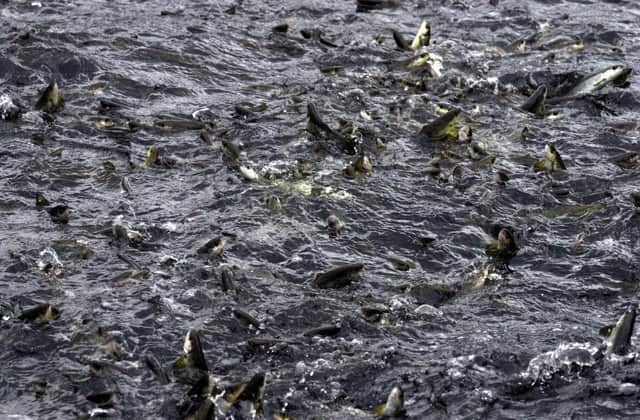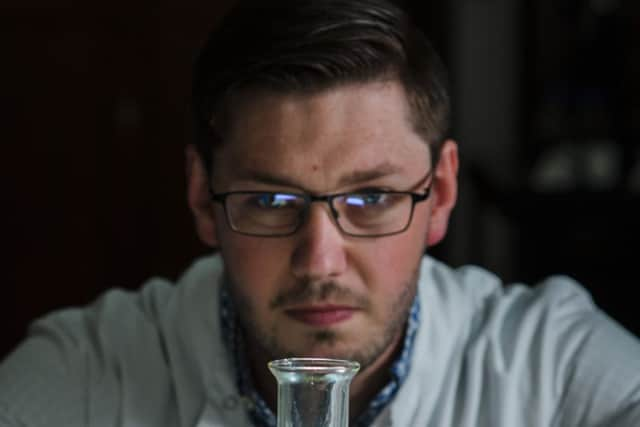Whisky waste to grow healthier salmon food


Douglas Martin, 26, has developed a sustainable way of increasing the Omega content of the fish.
He has created a nutrient rich microalgae which is grown in giant stainless steel tanks using waste water from the whisky industry.
Advertisement
Hide AdAdvertisement
Hide AdThe concept addresses a major challenge for the aquaculture industry – the sustainability of feed at a time of dwindling sea stocks and a rise in consumer demand for fish.


At present, more small fish, per kilo, are used to feed farmed salmon than the weight of fish ultimately produced. And with feed topped up by vegetables and soya beans, the Omega content of farmed salmon has dropped by half over the past five years.
Martin said: “The sustainability of fish feed is a serious issue for the aquaculture industry. Collapsing fish stocks are driving the use of fishmeal replacements, such as soya beans and sunflower seeds.
“Our microalgae replaces the practice of mincing up other small fish to put into animal and fish feed. But it is naturally rich in Omegas so it brings the levels back up – it’s where the healthy bit comes from.”
The aquaculture feed industry is worth £17 billion globally, with the figure projected to double in the next 15 years given rising human consumption of fish.


Martin grows the microalgae using waste water from the whisky industry, which cuts the cost of production.
The waste water is also cleaned of potentially harmful phosphates and nitrates before it is put back in the system.
Martin, founder of firm MiAlgae, was working in the North Sea installing cables for an offshore wind power company when he struck on his idea.
Advertisement
Hide AdAdvertisement
Hide Ad“A big algae bloom halted our work for months. It got me thinking about how we could put that algae to better use.”
The Edinburgh University graduate, who collected his Masters in Synthetic Biology and Biotechnology just last year, has attracted a clutch of backers and funders.
A recent recruit to the Edinburgh Centre for Carbon Innovation’s Ideas Lab, he was awarded a Scottish Enterprise Smart: Scotland grant to fund one year’s worth of research and development.
This week, he collected a Smarter Future award from the Shell LiveWIRE UK programme which supports young entrepreneurs.
“It has been a crazy time,” said Martin.
He added: “I have been really surprised and impressed by the help and support we have gained from the Scottish low carbon and entrepreneurial community.”
The hope is to create a large-scale, low-cost microalgae production company and to take MiAlgae across the globe.
Scotland and Europe are key markets of the firm – with Martin also setting his sights on North America and China.